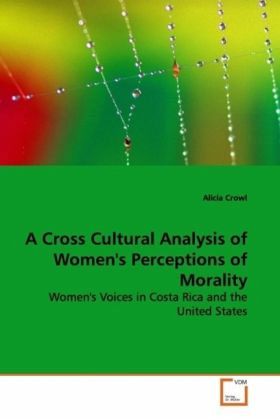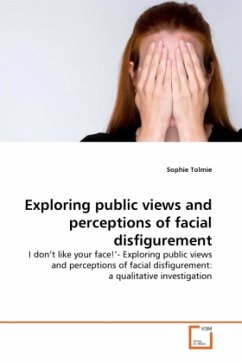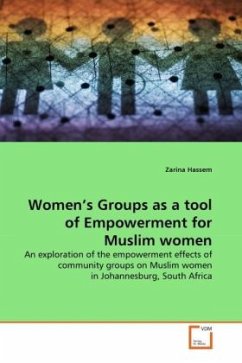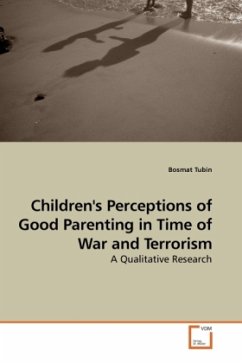
A Cross Cultural Analysis of Women's Perceptions of Morality
Women's Voices in Costa Rica and the United States
Versandkostenfrei!
Versandfertig in 6-10 Tagen
39,99 €
inkl. MwSt.

PAYBACK Punkte
20 °P sammeln!
This study is a cross-cultural comparative analysis of women s perceptions of morality through their concepts of self and responsibility. Questions elicited from Carol Gilligan s book, A Different Voice, were used as the instrument for evaluating two samples of women: Costa Rica and Iowa. A considerable amount of research done over the effect of culture on women s perceptions of morality and self provide controversial findings with respect to the women s orientation towards justice or care. After administering six questions to eighty women in two different cultures, the results suggested that ...
This study is a cross-cultural comparative analysis
of women s perceptions of morality through their
concepts of self and responsibility. Questions
elicited from Carol Gilligan s book, A Different
Voice, were used as the instrument for evaluating
two samples of women: Costa Rica and Iowa. A
considerable amount of research done over the effect
of culture on women s perceptions of morality and
self provide controversial findings with respect to
the women s orientation towards justice or care.
After administering six questions to eighty women in
two different cultures, the results suggested that
both groups of women elicited the care perspective
in their responses, consistent with Gilligan s
findings. The effects of educational attainment and
culture did seem to influence the women s responses,
but yet did not obstruct the care voice.
of women s perceptions of morality through their
concepts of self and responsibility. Questions
elicited from Carol Gilligan s book, A Different
Voice, were used as the instrument for evaluating
two samples of women: Costa Rica and Iowa. A
considerable amount of research done over the effect
of culture on women s perceptions of morality and
self provide controversial findings with respect to
the women s orientation towards justice or care.
After administering six questions to eighty women in
two different cultures, the results suggested that
both groups of women elicited the care perspective
in their responses, consistent with Gilligan s
findings. The effects of educational attainment and
culture did seem to influence the women s responses,
but yet did not obstruct the care voice.












